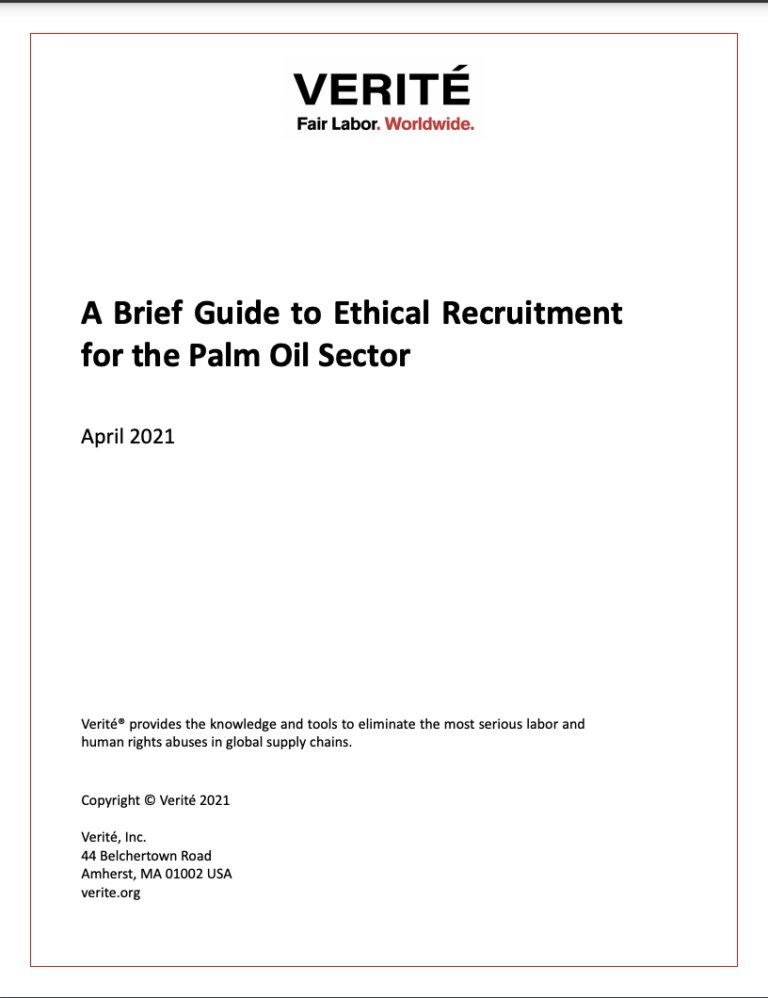According to recent reports, the global palm oil market is expected to reach USD 92.84 billion in 2021. Palm oil and palm-based ingredients are found in
approximately 50 percent of supermarket products making them ever present in our daily consumption – yet the workers who harvest this ubiquitous oil remain largely hidden from the public eye. Research shows that forced and trafficked labor exists in some palm oil supply chains and that risks are higher in operations that rely heavily on migrant workers. One of the main contributory factors is that the palm oil sector is characterized by institutional fragmentation of the cross-border recruitment marketplace, where employers, recruiters, and their local and regional subcontractors may operate in different jurisdictions with limited accountability to one another, to regulators, or to workers. This has led to a host of problems that have for years plagued the sector, including excessive recruitment fee charging, passport confiscation and restriction of workers’ movements, contract fraud, unauthorized deductions in wages, poor working conditions and inadequate access to affordable food supplies, debt bondage, no freedom of association, a lack of legal and financial remedies, illegal outsourcing of foreign workers to labor contractors, and other exploitative host-country conditions.
Addressing these issues requires employers to take control of the recruitment process by: gaining full visibility into how workers are selected, hired and subsequently brought to the work site; ensuring that workers are fully prepared for and freely choose the job; and ensuring that workers are able to pre-terminate their contract of employment freely and without any penalty. This paper aims to help companies in the palm oil sector improve their recruitment practices by promoting a “systems approach” to social compliance, and human rights-based due diligence as an ongoing risk management process in their operations and supply chains.

